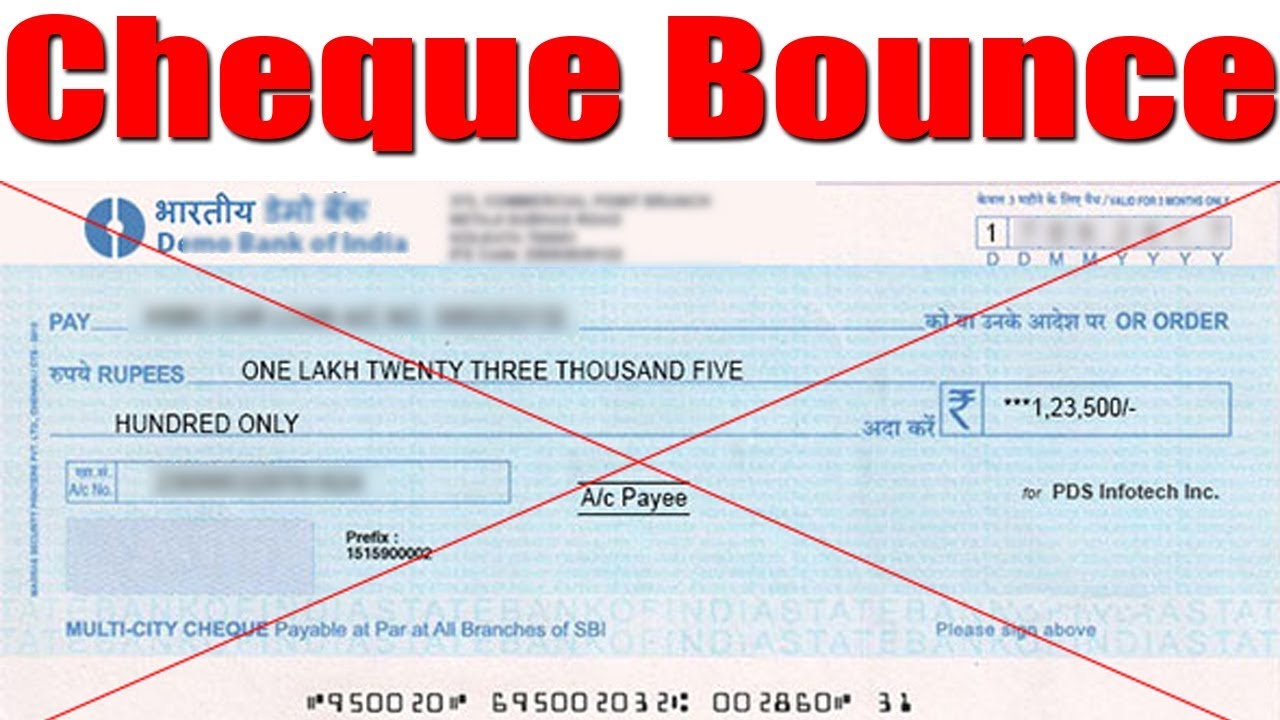Cheque Bounce? Remember Rule 30-15-30
Once, a cheque is dishonoured on its presentation, the drawee/payee (the person who is given the cheque) gets an information from the bank in which the same is presented by way of “Cheque Returning Memo” stating therein, the reason for dishonor of the cheque for example “Insufficient Funds”, “Stopped Payment”, “Account Closed” etc.
The drawee/payee has to serve a statutory legal notice under Section 138 of The Negotiable Instrument Act, 1881 (as amended upto date) to the drawer (the person who had drawn/given the cheque) within 30 days from the date printed on the cheque returning memo (the date mentioned on the returning memo is excluded in 30 days) stating therein that the said cheque has bounced due to such and such reason and seek payment of the cheque amount within 15 days from the receipt of the legal notice.
The drawee/payee after serving the aforesaid statutory legal notice is required to wait for 15 days from the date, the legal notice is served for receiving the payment qua the said cheque. (It is advisable to serve statutory legal notice on all addresses of the drawer through Speed Post and thereafter, obtain tracking/delivery report of the Speed Post from the official website of India Post).
In case, the payment towards the said cheque is not received from the drawer within 15 days, the drawee/payee gets 30 days from the date on which the aforesaid 15 days gets over to file a complaint before the Metropolitan Magistrate under Section 138 of The Negotiable Instrument Act.
The complaint under Section 138 of The Negotiable Instrument Act is filed within the jurisdiction of the Courts where the principal bank of the drawee/payee is situated.
The aforesaid time is statutory time under The Negotiable Instrument Act as the Act is a penal statute, which warrants strict construction and hence, necessary ingredients of the offence committed under the said act are required to be satisfied. Therefore, the time limit as stated above for the compliance are necessary.
The above information is based on personal experience of the Advocate and no part of this should be construed as providing legal advice for any purpose.


